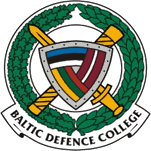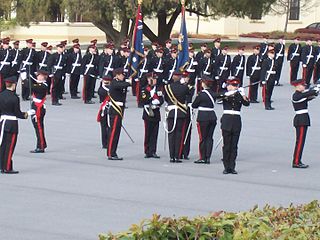
A military academy or service academy is an educational institution which prepares candidates for service in the officer corps. It normally provides education in a military environment, the exact definition depending on the country concerned.
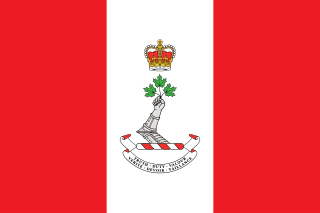
The Royal Military College of Canada, commonly abbreviated as RMC , is the military college of the Canadian Armed Forces, and is a degree-granting university training military officers. RMC was established in 1876 and is the only federal institution in Canada with degree-granting powers. The Royal Military College of Canada Degrees Act, 1959 empowers the college to confer degrees in arts, science, and engineering. Programs are offered at the undergraduate and graduate levels, both on campus as well as through the college's distance learning programme via the Division of Continuing Studies.

Russia has a number of military academies of different specialties. This article primarily lists institutions of the Armed Forces of the Russian Federation rather than those of the Soviet Armed Forces.

A police academy is a training school for new police recruits, also known as a law enforcement academy. Some are known as colleges or universities. They all have various background checks, examination, physical requirements, medical requirements, legal training, driving skills, equipment training and firearm training for new police recruits. The academy prepares the recruits for the police force they will be assigned to when they graduate.

The Imperial Japanese Army Academy was the principal officer's training school for the Imperial Japanese Army. The programme consisted of a junior course for graduates of local army cadet schools and for those who had completed four years of middle school, and a senior course for officer candidates.
The Indian military services have established numerous academies and staff colleges across India for the purpose of training professional soldiers in military sciences, warfare command and strategy, and associated technologies.

The Air University (AU), headquartered at Maxwell Air Force Base, Alabama, is the U.S. Air Force's center for professional military education (PME). It is a key component of the Air Education and Training Command (AETC).
The Australian Defence College (ADC) comprises three tri-service educational organisations operated by the Australian Defence Force in Canberra, Australian Capital Territory:

The Australian Defence Force Academy (ADFA) is a tri-service military Academy that provides military and tertiary academic education for junior officers of the Australian Defence Force in the Royal Australian Navy (RAN), Australian Army and Royal Australian Air Force (RAAF). In 2016 the Academy began accepting civilian students in its undergraduate courses.

The Evelpidon Military Academy is the Officer cadet school of the Greek Army and the oldest tertiary level educational institution in Greece. It was founded in 1828 in Nafplion by Ioannis Kapodistrias, the first Governor of the modern Greek State.
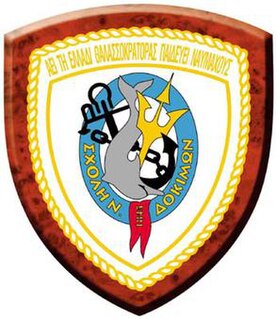
The Hellenic Naval Academy is a military university and has the responsibility to educate and suitably train competent Naval Officers for the Hellenic Navy. Its full name is Hellenic Naval Cadets Academy and was founded in 1845. The academy is one of the oldest educational institutions in Greece.
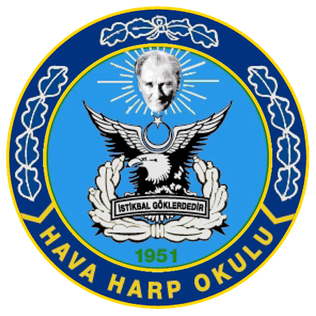
The Turkish Air Force Academy (TuAFA) is a four-year co-educational military academy located in the city of Istanbul, Turkey. It is the main human resource for the Turkish Air Force Command.
The International Association for Military Pedagogy (IAMP) was founded in November 2005 in Strausberg (Germany) as a successor to the European Military Pedagogy Forum (EMPF).

The Military Academy of the University of Defence is a training college devoted to military education and career development located in Belgrade, Serbia. The academy forms part of the Serbian higher education system, offering accredited graduate and postgraduate curriculum. It contains a military high school, offering secondary-level education, and a school of national defense, which conducts officer training. The academy's facilities include a sports center with a swimming pool, a stadium with running tracks, modern classrooms for foreign language learning, and lecture theaters.

University of Tartu Viljandi Culture Academy is an Estonian institution of higher education, situated in the provincial town of Viljandi, central Estonia. The UT Viljandi Culture Academy merged with the University of Tartu in 2005. The UT VCA has been teaching professional higher education and performing applied research within information science, culture education and creative arts since 1952. The academy has about 1000 students, half of whom are open university students. The teaching and instruction are based on the continuity and sustainability of Estonian native culture enriched by new impulses which widen the notion of traditional culture. Director of the UT VCA is Dr. Iñaki Sandoval Campillo.
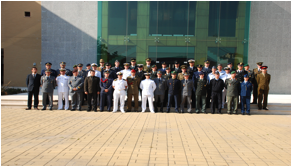
The Military Erasmus Programme, formally the European initiative for the exchange of young officers inspired by Erasmus, is an initiative undertaken by the European Union (EU) member states aimed at developing the exchanges between armed forces of future military officers as well as their teachers and instructors during their initial education and training. Due to the fact that the initiative is implemented by the Member States on a purely voluntary basis, their autonomy with regard to military training is not compromised.

The National University of Public Service is higher educational institution in Budapest, Hungary. Established in 2012, it is one of the youngest universities in Central and Eastern Europe, however, its faculties as former independent colleges look back much earlier.

The Joint Command and Staff College (JCSC) is one of the colleges of the UAE armed forces that specialize in teaching the art of war in general and the operational art in particular. The JCSC combines theory and practice as a basis for its instructional methodology and aims to develop leadership qualities in the students. The JCSC contributes to forming the concept of employment for the armed forces in joint operations and military operations in peacetime, such as peacekeeping and peace support operations.



